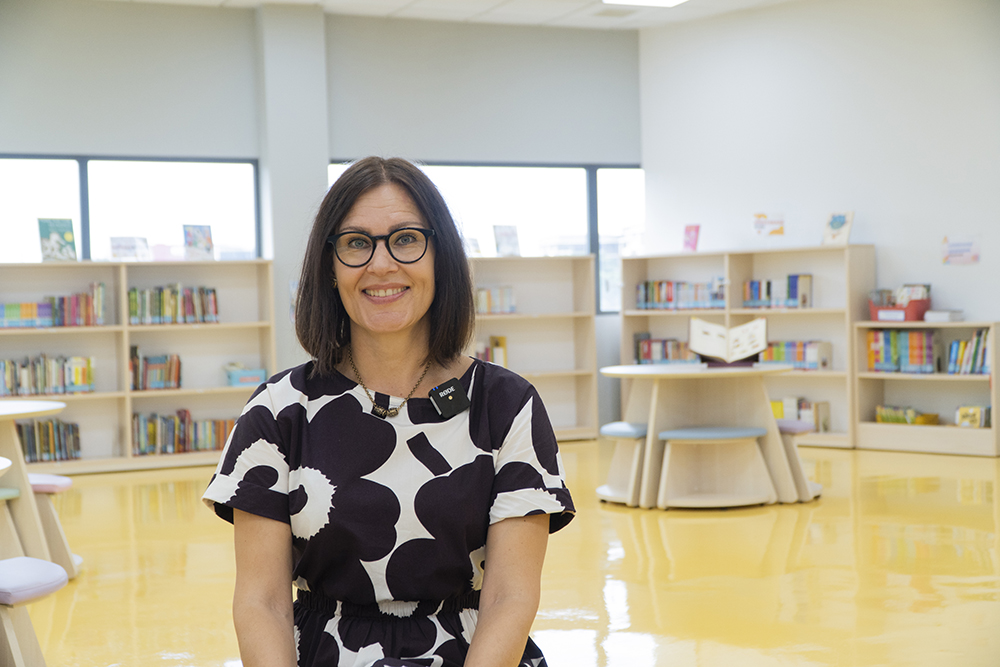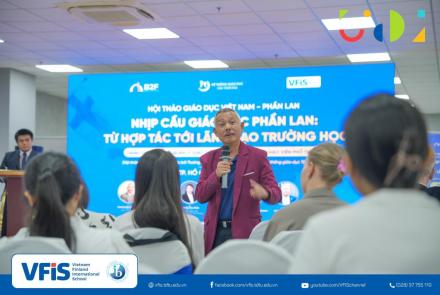Oral Testing from Finnish Teachers’ perspective at VFIS
Early-hour testing, also known as oral testing, is no longer unfamiliar to teachers and students in Vietnamese public schools. How is this testing method perceived according to the educational philosophy of Finnish teachers teaching at Vietnam-Finland International School?
Acting Head of School - Ms. Suvi’s Sharing
Oral testing seems unfair, as it involves a random element. For example, the student might have experienced something the previous day that could significantly impact their grade. Additionally, the teacher might select students based on the difficulty of the topic or the students' interests. I must mention that a similar surprise quiz could occur in Finland, but it's written with the same questions for everyone. The advantage of a written quiz is that everyone receives the same questions and it can be conducted simultaneously. The previous lesson is reviewed at the beginning of the next class, where students raise their hands to show they know and want to answer. This knowledge could positively influence grading, but usually by a maximum of one grade.

Teacher Ulla-Maija Myllyluoma’s sharing
The idea of the oral test sounds fine, but the way it is done might not be the best in my opinion. Also the stress that you don't know whether you will be chosen to answer or not is not supporting learning but opposite. The students prepare for it in groups or answer the questions in smaller groups. Maybe even the teacher could divide the material into pieces and in groups the students would take responsibility to cover one part of the material. Then the next day (or some days) they would in groups answer the teacher and have support from each other. As the way the oral test is done at the moment, I personally do not think it encourages learning in a positive way

Teacher Joonas’s Sharing
Oral testing that is mostly focused on memorizing things and details seems very outdated and not useful or supportive for students learning. I do not know if it is a good idea to ban one assessment method categorically. I think it is important that the students have multiple ways of showing what they have learned. Assessment should not only be based on exam or test results, but rather on continuous assessment during their study process (depending on the subject of course). Instead of memorizing details, the focus should be on the bigger picture and applying the knowledge through various examples.

Teacher Paula’s sharing
In my opinion, oral testing can be used as an additional method for students if they have any learning difficulties, such as dyslexia. It can then give an opportunity for a student to show their skills despite their challenges in written expression. But as a method itself, we don't use it in Finland. Giving oral answers can cause extra stress for the students, especially when they can not show their skills in the best optimal way of speaking. When taking writing tests, students have more time to reflect on their answers and organize their thoughts without the pressure of oral communication.





